Digital Marketing
Top 5 Digital Marketing Avenues for Brand Transformation
In today’s fast-paced digital world, effective marketing strategies are more important than ever for businesses that want to stand out. Digital marketing is all about using online channels to connect with your audience, build your brand, and drive sales. Whether you’re a small startup or a well-established company, a solid digital marketing plan can make a huge difference in how people perceive and interact with your business.
Our Digital Marketing Services
At Infuntainment, we understand that every business is unique, which is why we offer tailored digital marketing services to meet your specific needs:
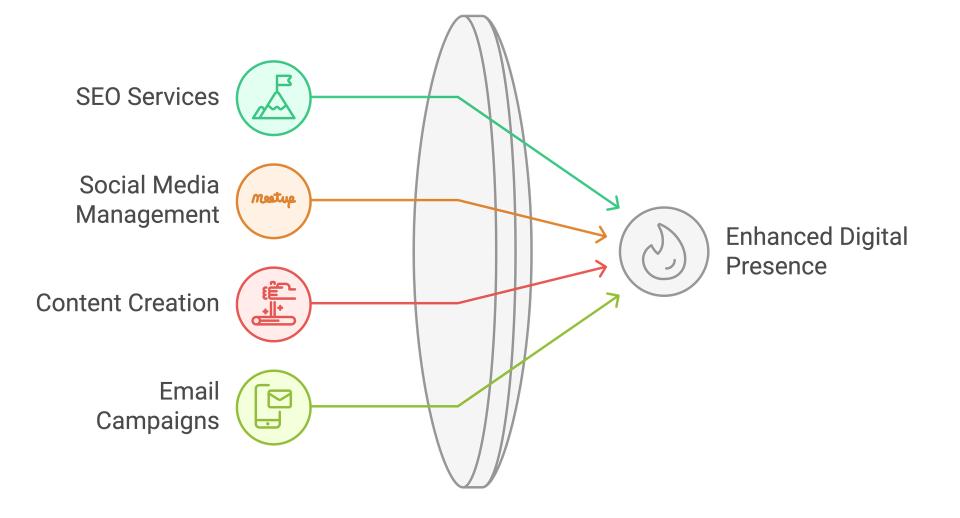
SEO Services: Let us help you climb the search engine rankings and attract more visitors to your website.
Social Media Management: We’ll create and manage your social media profiles to engage your audience and boost your brand.
Content Creation: Our team will develop compelling content that speaks to your audience and keeps them coming back for more.
Email Campaigns: We design and execute targeted email campaigns to help you nurture leads and convert them into loyal customers.
Get Started with Digital Marketing Today!
Are you ready to take your business to new heights with digital marketing? We’re here to help! Contact us today for a free consultation, and let’s work together to create a strategy that aligns with your vision and connects you with your audience in a meaningful way.
8 Types of Digital Marketing
Digital marketing encompasses a variety of strategies and channels that businesses can use to reach their target audience online. Here are eight key types of digital marketing that can help elevate your brand:
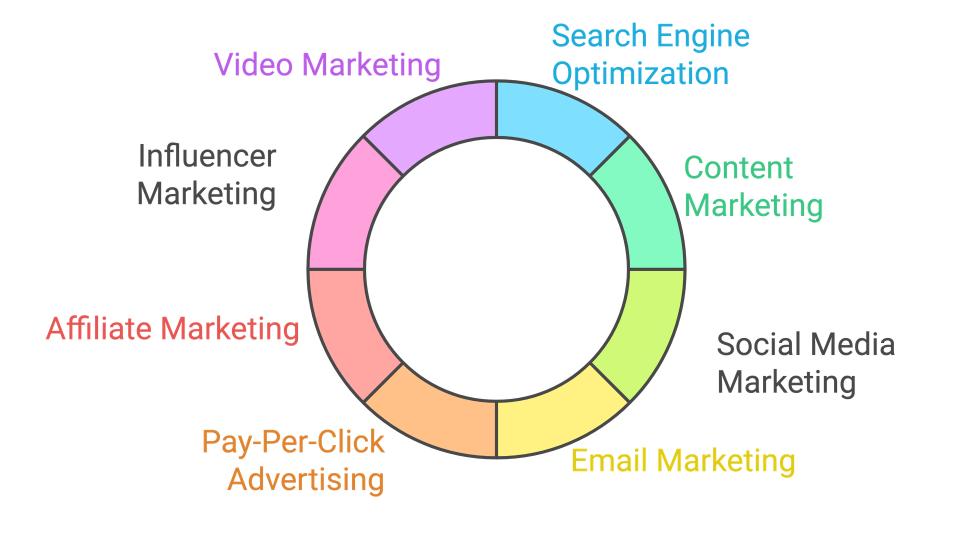
- Search Engine Optimisation (SEO)
SEO involves optimising your website and content to rank higher in search engine results pages (SERPs). The goal is to increase organic (non-paid) traffic by improving visibility on search engines like Google. - Content Marketing
This strategy focuses on creating and sharing valuable content (like blogs, videos, and infographics) to attract and engage a specific audience. The goal is to provide useful information that helps build trust and authority. - Social Media Marketing
Utilizing platforms such as Facebook, Instagram, Twitter, and LinkedIn, social media marketing aims to connect with your audience, promote your brand, and drive traffic to your website through engaging posts and interaction. - Email Marketing
Email marketing involves sending targeted emails to nurture leads and maintain relationships with existing customers. It’s an effective way to promote products, share news, and provide personalised content. - Pay-Per-Click (PPC) Advertising
PPC is a form of online advertising where businesses pay a fee each time someone clicks on their ads. This includes platforms like Google Ads and social media ads, allowing for targeted visibility. - Affiliate Marketing
In this type of marketing, businesses partner with affiliates who promote their products or services in exchange for a commission on sales generated through their referrals. It's a performance-based approach that can expand reach. - Influencer Marketing
This strategy involves collaborating with influencers—individuals with a significant following on social media or other platforms—to promote your products or services. Influencers can help build credibility and reach a wider audience. - Video Marketing
Video marketing utilises video content to promote products, explain services, or share stories. Platforms like YouTube and social media are popular for hosting video content, making it an engaging way to reach potential customers.
Benefits of digital marketing
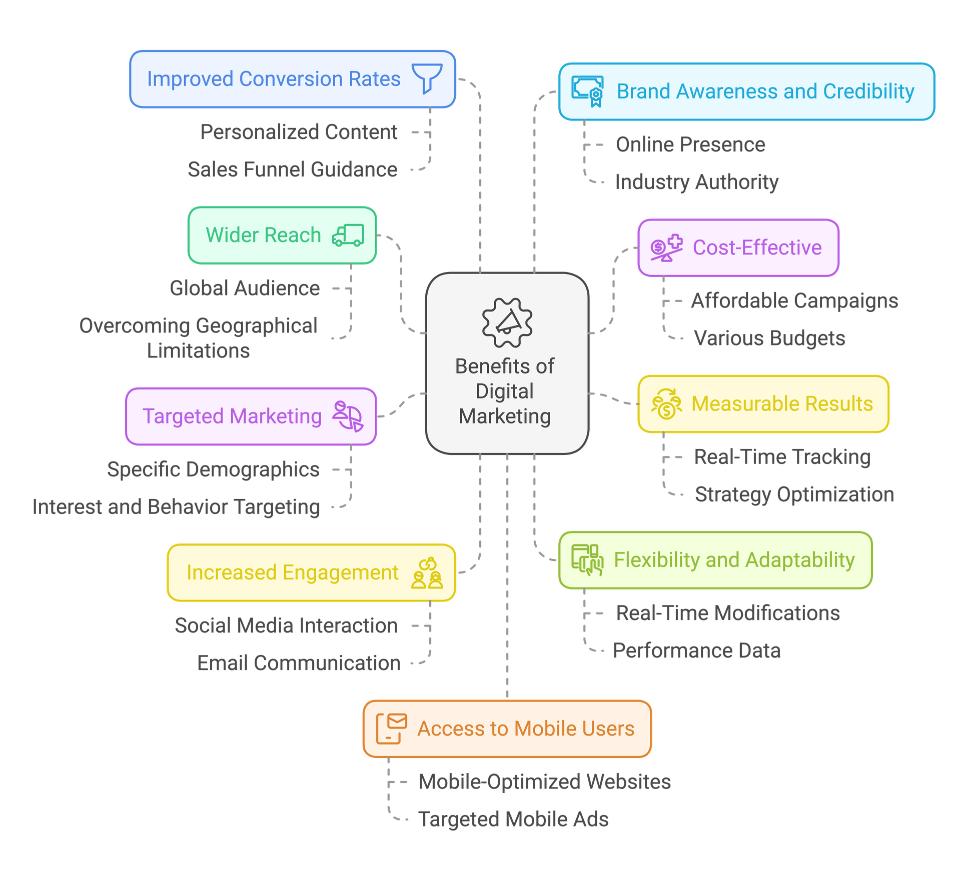
Digital marketing offers numerous advantages that can significantly enhance your business’s growth and outreach. Here are some of the top benefits:
- Wider Reach
Digital marketing enables businesses to connect with a global audience, overcoming geographical limitations faced by traditional marketing methods. - Cost-Effective
Generally more affordable than traditional channels (like print or TV), digital marketing campaigns can be tailored to fit various budgets, making them accessible for businesses of all sizes. - Measurable Results
Provides detailed analytics and reporting tools, allowing businesses to track campaign performance in real-time and make informed decisions for strategy optimization. - Targeted Marketing
Enables targeting of specific demographics, interests, and behaviors, ensuring marketing efforts reach the right audience and increasing conversion likelihood. - Increased Engagement
Facilitates direct interaction with customers through channels like social media, email, and chatbots, fostering relationships and building brand loyalty. - Flexibility and Adaptability
Strategies can be quickly adjusted based on performance data, allowing for real-time modifications that enhance results. - Improved Conversion Rates
By utilizing targeted campaigns and personalised content, businesses can effectively guide potential customers through the sales funnel, improving conversion rates. - Brand Awareness and Credibility
A strong online presence enhances brand visibility and credibility, with consistent, valuable content positioning your brand as an industry authority. - Access to Mobile Users
Reaches mobile users effectively through mobile-optimised websites and targeted mobile ads, significantly enhancing audience reach. - Better Customer Insights
Provides valuable insights into customer behaviour and preferences, allowing for more tailored and effective marketing strategies.
How does digital marketing work?
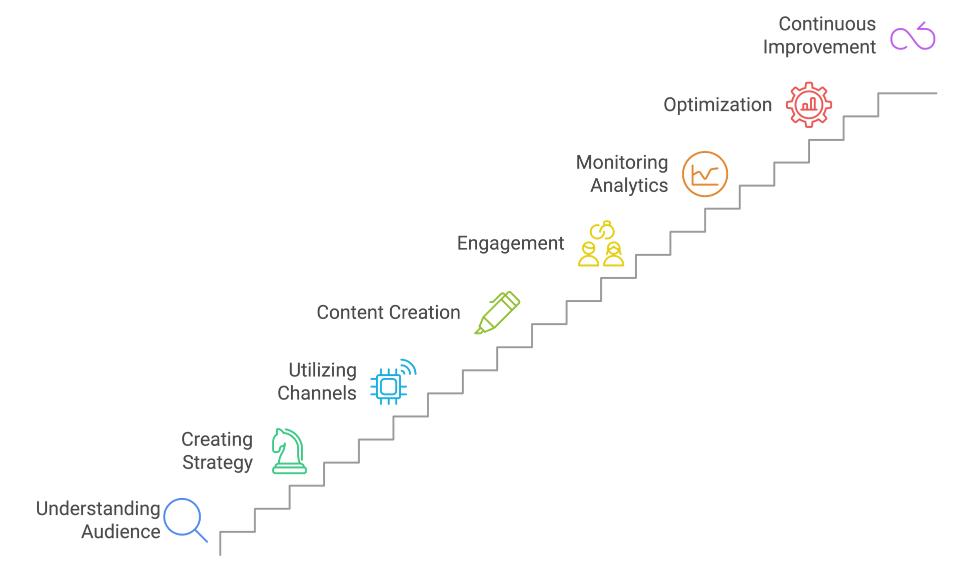
Digital marketing offers numerous advantages that can significantly enhance your business’s growth and outreach. Here are some of the top benefits:
- Understanding the Audience
The first step in digital marketing is identifying and understanding your target audience. This involves researching demographics, interests, and online behaviours to tailor your marketing efforts effectively. - Creating a Strategy
Once you know your audience, you can develop a comprehensive digital marketing strategy. This strategy outlines the goals you want to achieve, such as increasing brand awareness, generating leads, or boosting sales, and the channels you will use to reach those goals. - Utilizing Various Channels
Digital marketing encompasses multiple channels, including:-
- Search Engines
Using SEO and PPC to increase visibility on search engines like Google. - Social Media
Engaging with audiences on platforms like Facebook, Instagram, and Twitter to build relationships and promote content. - Email
Sending targeted email campaigns to nurture leads and keep customers informed. - Content Marketing
Creating valuable content (blogs, videos, infographics) that attracts and engages your audience.
- Search Engines
-
- Content Creation and Distribution
High-quality content is at the heart of digital marketing. This content is created based on audience insights and is distributed across various channels to maximise reach and engagement. - Engagement and Interaction
Digital marketing allows for direct interaction with customers. Engaging with your audience through comments, messages, and social media posts helps build relationships and fosters brand loyalty. - Monitoring and Analytics
One of the key advantages of digital marketing is the ability to track and analyse performance in real-time. Tools like Google Analytics provide insights into website traffic, user behavior, and campaign effectiveness, allowing marketers to make data-driven decisions. - Optimisation
Based on the data collected, marketers can optimise their strategies. This may involve adjusting ad spend, refining content, or targeting different audience segments to improve results. - Continuous Improvement
Digital marketing is an ongoing process. As trends change and new technologies emerge, businesses must continuously adapt their strategies to stay relevant and effective.
Inbound marketing versus digital marketing
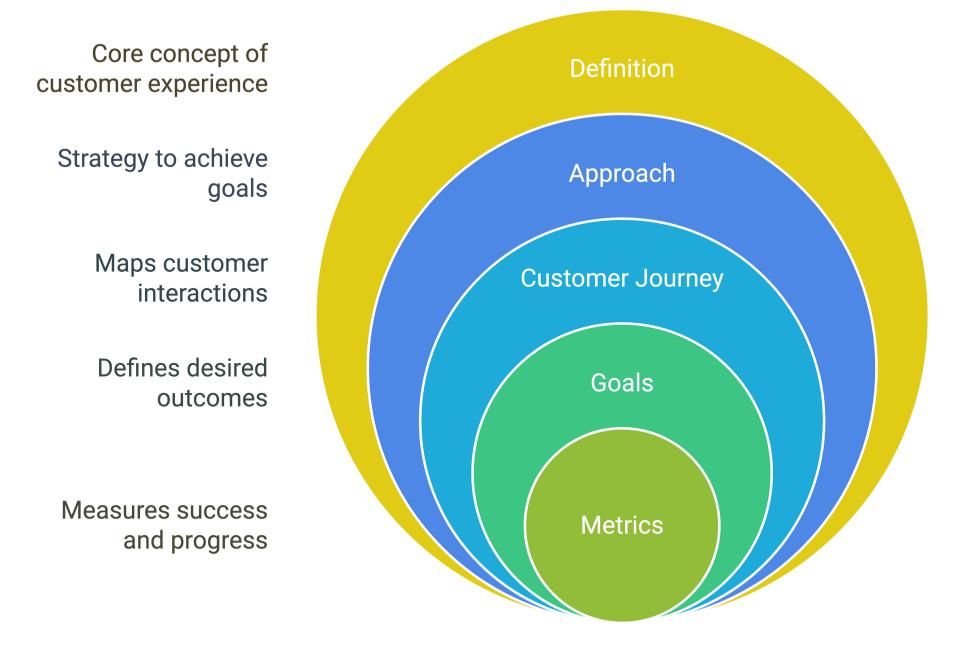
Definition
- Inbound Marketing: A strategy that attracts customers through valuable content, fostering relationships and providing value throughout the buyer's journey.
- Digital Marketing: A broader term that includes all online marketing efforts using the internet or electronic devices, incorporating both inbound and outbound strategies.
Approach
- Inbound Marketing: Focuses on creating valuable content tailored to the target audience’s needs, involving content creation and personalised communication.
- Digital Marketing: Utilises a wider range of tactics, including traditional methods like display ads and PPC, to promote products and services across multiple online channels.
Customer Journey
- Inbound Marketing: Aligns with the buyer’s journey (awareness, consideration, decision), providing relevant content to guide potential customers through each stage.
- Digital Marketing: Can target customers at any stage of the buyer's journey, involving direct advertising aimed at quick conversions without necessarily nurturing relationships.
Goals
- Inbound Marketing: Aims to build trust and long-term relationships with customers by providing value, converting visitors into leads, and leads into brand advocates.
- Digital Marketing: Focuses on increasing brand visibility, driving traffic, and generating leads or sales, often prioritising immediate results and conversions.
Metrics
- Inbound Marketing: Success is measured by content engagement, lead generation, customer retention, and brand loyalty, emphasizing the quality of leads and relationships.
- Digital Marketing: Metrics vary based on strategies used, commonly including website traffic, click-through rates (CTR), conversion rates, and return on investment (ROI), focusing on both qualitative and quantitative results.
B2B versus B2C digital marketing
B2B and B2C digital marketing differ significantly in terms of target audience, buying processes, content strategies, marketing channels, and relationship dynamics.
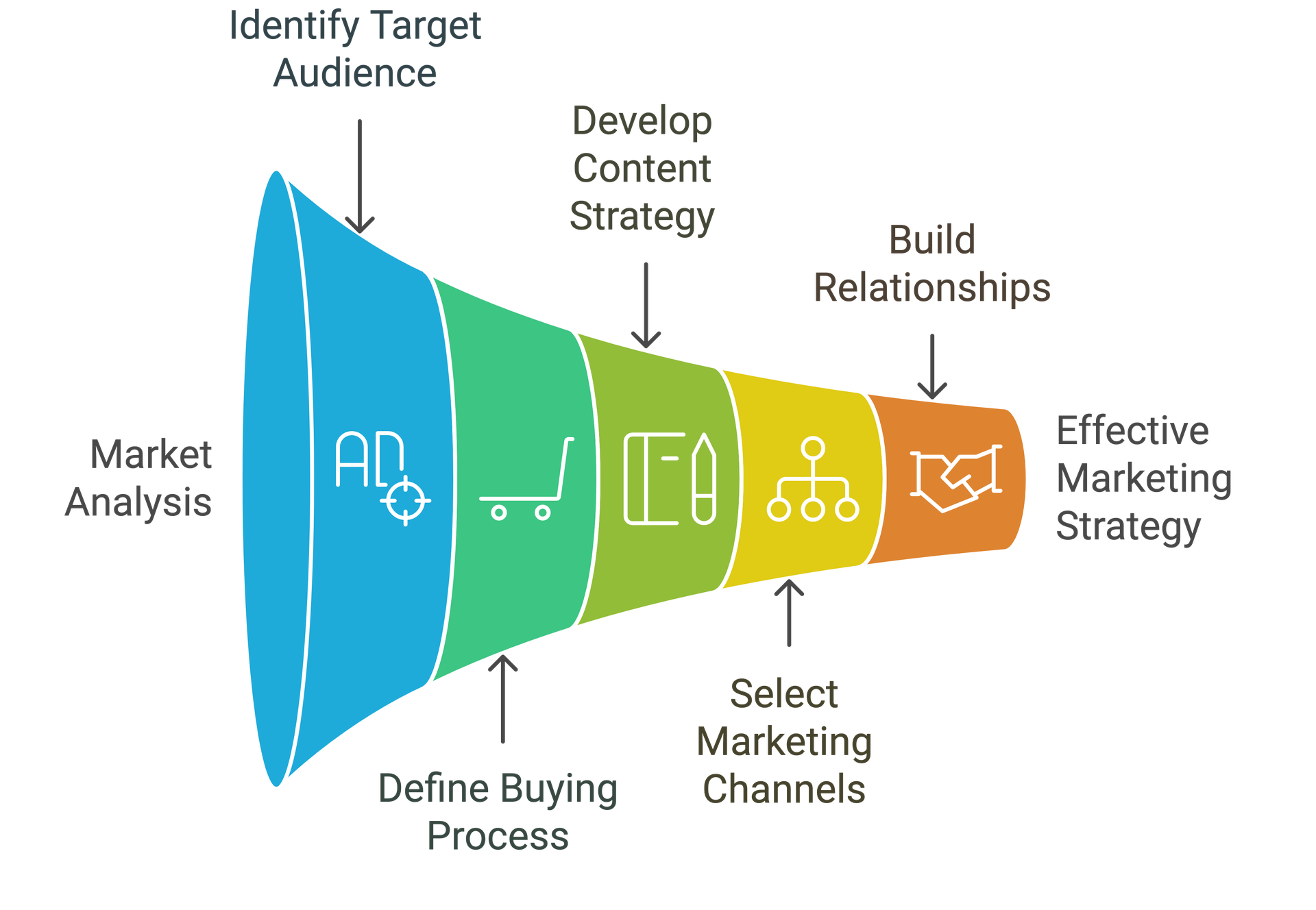
Understanding these differences allows marketers to tailor their approaches effectively, ensuring they meet the unique needs of each segment. If you have more questions or need further clarification, feel free to ask!
The differences may be seen below.
Target Audience
- B2B Marketing: Targets other businesses, focusing on decision-makers like executives and managers. The audience is smaller and specialised, requiring a deep understanding of industry needs.
- B2C Marketing: Targets individual consumers, encompassing a larger and more diverse audience. Marketing efforts appeal to emotions and personal preferences.
Buying Process
- B2B Marketing: Involves a longer, more complex buying process with multiple stakeholders. Decisions are based on logic, ROI, and long-term benefits, necessitating detailed information and relationship-building.
- B2C Marketing: Features a quicker, more impulsive buying process, where decisions are often driven by emotions and immediate needs. Strategies focus on creating urgency and appealing to desires.
Content Strategy
- B2B Marketing: Content is informative and educational, including white papers, case studies, and webinars that help businesses understand product value.
- B2C Marketing: Content is more entertaining and engaging, utilizing storytelling and visuals to highlight lifestyle benefits and brand identity.
Marketing Channels
- B2B Marketing: Utilises channels like LinkedIn, industry forums, and email marketing, focusing on professional relationships and networking.
- B2C Marketing: Leverages a broader range of channels, including social media platforms like Instagram and Facebook, influencer marketing, and online advertising to reach consumers.
Relationship Building
- B2B Marketing: Emphasises long-term relationships, trust, and credibility, with personalised communication and lead nurturing over time.
- B2C Marketing: Focuses on brand loyalty and customer experience, engaging consumers through promotions, loyalty programs, and social media interactions.
New non-linear marketing approach
Non-linear digital marketing approaches are becoming increasingly important as consumer behavior evolves and the traditional linear marketing funnel becomes less effective. Here are some key aspects of these new strategies.
Embracing these non-linear digital marketing approaches, businesses can better navigate the complexities of modern consumer behavior, ultimately leading to more meaningful interactions and improved customer loyalty. If you have any further questions or need more details on a specific aspect, feel free to ask!
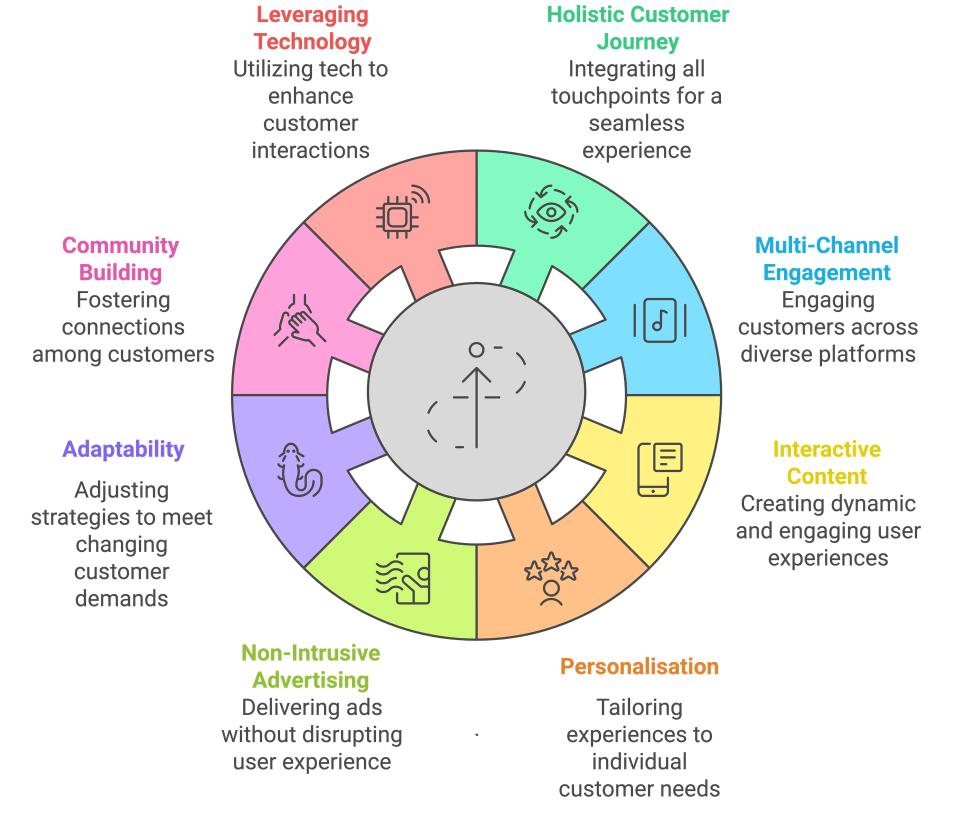
Holistic Customer Journey
Non-linear marketing acknowledges that consumers engage with brands through various touch points and channels, rather than following a straightforward path to purchase. Businesses must adopt a holistic view to accommodate the complexity of these interactions.
Multi-Channel Engagement
Effective non-linear marketing campaigns deliver consistent messaging across multiple channels, integrating social media, email, content marketing, and paid advertising. This cohesive experience enhances brand visibility and fosters deeper consumer connections.
Interactive and Engaging Content
Non-linear marketing encourages active consumer participation through interactive content such as quizzes, polls, and user-generated submissions, moving away from traditional passive consumption.
Personalisation and Customisation
This approach emphasises personalised experiences by leveraging data analytics and consumer insights. Brands can tailor messaging and offers to align with individual preferences, making interactions more relevant.
Non-Intrusive Advertising
Non-linear marketing focuses on non-intrusive methods that respect consumer preferences, aiming to integrate brand messaging seamlessly into the consumer experience without disruption.
Adaptability and Flexibility
The dynamic nature of non-linear marketing requires marketers to adapt strategies based on real-time data and changing consumer behaviours, allowing them to respond effectively to market trends.
Community Building
Non-linear marketing fosters a sense of community among consumers by creating platforms for discussion, feedback, and collaboration, enhancing customer connection to the brand and each other.
Leveraging Technology
Advanced technologies like artificial intelligence and machine learning are crucial in non-linear marketing, helping analyse consumer data, predict behaviours, and automate personalised marketing efforts for improved campaign effectiveness.
Ineffective forms of digital marketing
While digital marketing offers numerous opportunities for businesses to connect with their audiences, certain approaches can be ineffective or even counterproductive. Here are some forms of digital marketing that may not yield the desired results.
By recognising these ineffective forms of digital marketing, businesses can refine their strategies and focus on approaches that foster engagement, build relationships, and drive conversions. If you have any further questions or need more insights, feel free to ask!
Overly Aggressive Advertising
Digital ads that are intrusive or overly aggressive can lead to negative consumer experiences. Pop-up ads, auto-playing videos, and excessive retargeting can frustrate users, causing them to disengage from the brand altogether
Neglecting Mobile Optimisation
With the increasing use of mobile devices, failing to optimise websites and content for mobile users can result in a poor user experience. If a site is difficult to navigate on a smartphone, potential customers are likely to abandon it, leading to lost opportunities.
Ignoring Analytics and Data
Not utilising analytics to inform marketing strategies can lead to ineffective campaigns. Without data-driven insights, businesses may continue to invest in strategies that do not resonate with their audience or drive conversions.
Generic Content
Producing content that lacks relevance or personalisation can fail to engage the target audience. Generic messaging does not address specific pain points or interests, making it less likely to capture attention or foster connections.
Spamming
Sending excessive emails or messages can be perceived as spam, damaging a brand’s reputation and leading to high unsubscribe rates. Consumers appreciate valuable and relevant communication, so overloading them with messages can backfire.
Neglecting Social Media Engagement
Simply posting content on social media without engaging with followers can be ineffective. Brands that do not respond to comments, messages, or feedback miss opportunities to build relationships and foster community.
Focusing Solely on SEO
While search engine optimisation (SEO) is important, an overemphasis on it at the expense of quality content can lead to poor user experiences. Content should be created for the audience first, with SEO as a secondary consideration.
Inconsistent Branding
Inconsistency in messaging, visuals, and tone across different digital platforms can confuse consumers and weaken brand identity. A cohesive brand presence is essential for building trust and recognition.
Ignoring Customer Feedback
Failing to listen to and act on customer feedback can hinder improvement and innovation. Brands that do not adapt based on consumer insights may struggle to meet evolving expectations.
Short-Term Focus
Relying solely on short-term tactics, such as flash sales or promotions, without building long-term relationships can lead to a lack of customer loyalty. Sustainable growth requires nurturing ongoing connections with customers.
Refresh Your Digital Marketing Skills
Refreshing your digital marketing skills is an ongoing process that requires dedication and adaptability. By analysing your strategies, embracing new technologies, focusing on quality content, and engaging with the community, you can enhance your expertise and drive better results for your business. If you have any further questions or need more insights, feel free to ask!
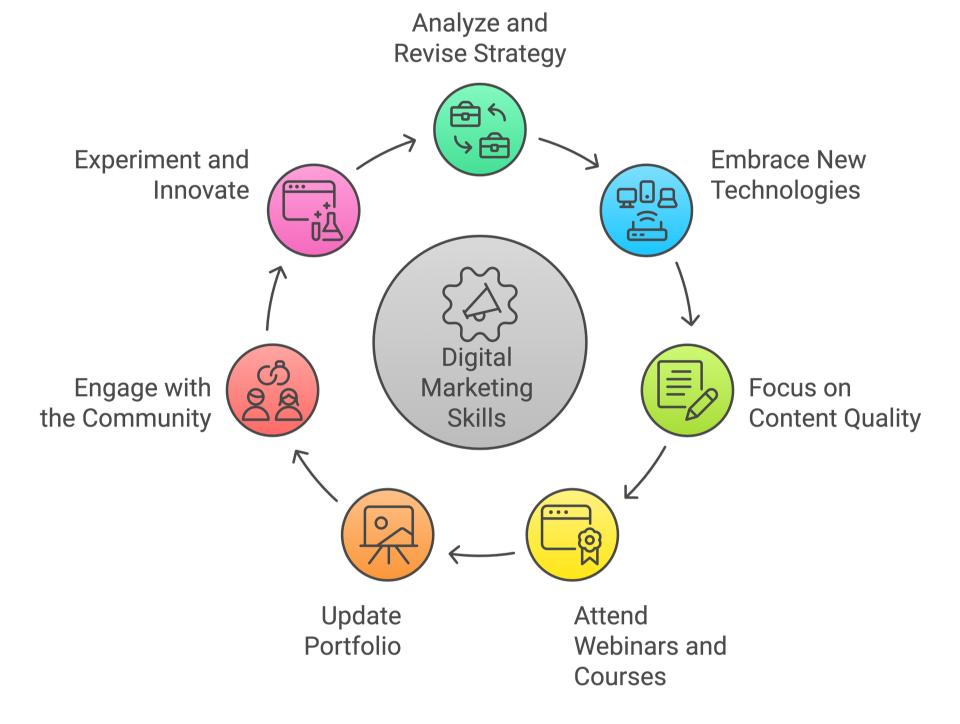
In the ever-evolving landscape of digital marketing, it’s essential to continuously refresh and enhance your skills to stay competitive and effective. Here are some strategies to help you update your digital marketing expertise.

